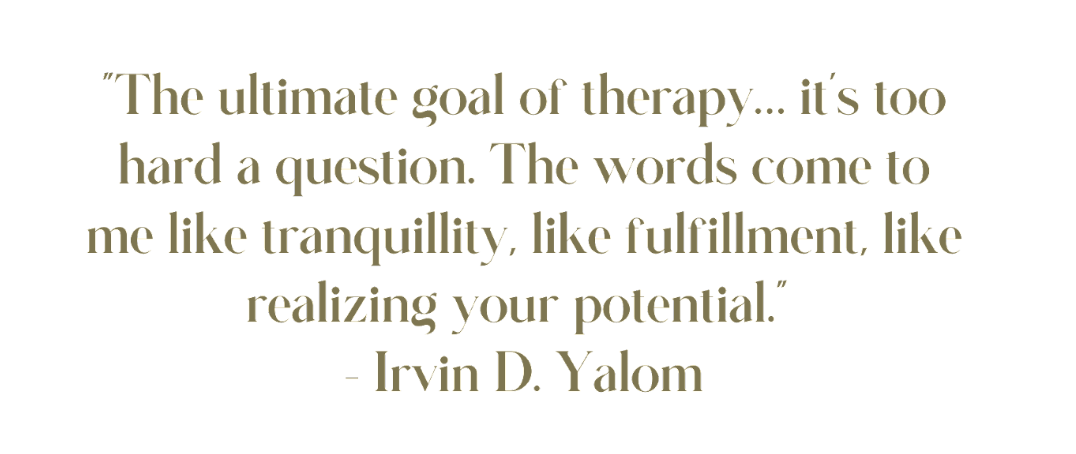Finding the Right Therapist
Starting therapy may feel intimidating, and so can finding the right therapist. To ease you into beginning your therapy journey, we’ve put together some frequently-asked-questions that might help you with the process.
How do I know if I need therapy?
People seek therapy for a variety of reasons, including the following:
Going through a stressful time;
You’ve experienced a traumatic event;
Life transitions – related to work, relationships, home-life, school, etc.;
Relationship issues;
Wanting to learn more about yourself and your habits;
To work on self-acceptance and self-esteem;
Obsessive thoughts or compulsive behaviour;
Experiencing anxiety;
Feeling depressed;
Experiencing psychological stress due to physical limitations or challenges;
To improve your overall mental health.
Although many of us seek therapy for these or similar reasons, we don’t necessarily need to be experiencing a particularly acute problem in order to benefit from it. If we are feeling good currently, therapy can help us feel even better! It’s important to remember that therapy is all about you and your needs, so whatever your reason, it’s ok to seek support and we are here to help you from where you are now.
What should I look for in a therapist?
This is also subjective. A helpful way to begin is to ask two key questions:
1. What am I looking for in a therapist?
You might prefer a very structured approach to therapy, or, maybe you’re more drawn to a therapist who’s more organic. You might be looking for a therapist with a specific area of expertise, or for someone to help you set goals and work toward them. While therapists can cater to your preferred method of therapy, they also have their own preferred approaches based on their unique set of expertise, interests and personality.
2. What kind of therapy would suit me best?
There are a variety of therapeutic modalities practised, including:
Cognitive-Behavioral Therapy (CBT);
Acceptance and Commitment Therapy (ACT);
Dialectical Behaviour Therapy (DBT);
Experiential & Humanistic Therapies;
Psychodynamic Therapy;
Somatic Therapies;
Systemic & Collaborative Therapies.
The modality of therapy that you might need or be drawn to also depends on you and your goals.
How do I know if I’ve chosen the right therapist?
Knowing whether you’ve chosen the right therapist depends mainly on how the relationship is feeling.
You can start off by asking yourself the following:
Does my therapist make me feel heard?
Do I feel comfortable opening up to them?
Do I feel like we’re connecting well?
Are we having open and honest communication?
Here are a few questions you may consider asking your therapist during your free 15-minute consultation:
What kind of therapy do you offer?
What areas of therapy do you specialize in?
What kind of modalities do you prefer to use?
Do you have experience helping others with the problems I’d like to address in our sessions?
What is your availability like?
It’s important to remember that it may take a bit of time for you and your therapist to get to know each other enough to know whether you’re a good fit for each other. It’s quite normal to attend two or three sessions before fully knowing whether you’d like to stay with your therapist or not.
You can even ask your therapist about their qualifications, why they chose their career path and are passionate about therapy. Feel free to ask about anything that might help you feel more comfortable with your therapist.
What happens if I choose the ‘wrong’ therapist?
If you feel like you and your therapist are not the right match for one another, it’s completely ok to request to stop sessions with them and to request to work with another therapist instead. We want you to feel that you and your therapist work really well together. If you’d like, you can try taking a free 15-minute consultation with a few different therapists to get a feel for which one might be right for you. At The Mind Collective, we are continually creating resources to help you to make therapy the most satisfying journey possible that reflects your needs, your goals and your personality.
You can also always let your therapist know of any discomfort you may be experiencing, or even address your concerns with them in your sessions. We are here to serve you, first and foremost!
How do I know what I want to get out of therapy?
It might be helpful to take a moment to consider your reasons for wanting therapy. You might consider how therapy could have a positive impact on your life. It might help to think through, or journal, about your current concerns or mental health challenges, and to think back to the moment when you first thought of seeking help.
Although finding the right therapist may take a bit of effort in the beginning, it can truly make a meaningful difference in the quality and benefit of your therapeutic experience. You’re already taking the right steps to better your mental health by considering seeking help, and thinking about how to receive the optimal kind of support. We applaud you for beginning your journey toward feeling better, and we welcome you try a free 15-minute consultation with one of our therapists:
Ready to start the transformation you’re seeking? Book a free consultation with one of our therapists today.


